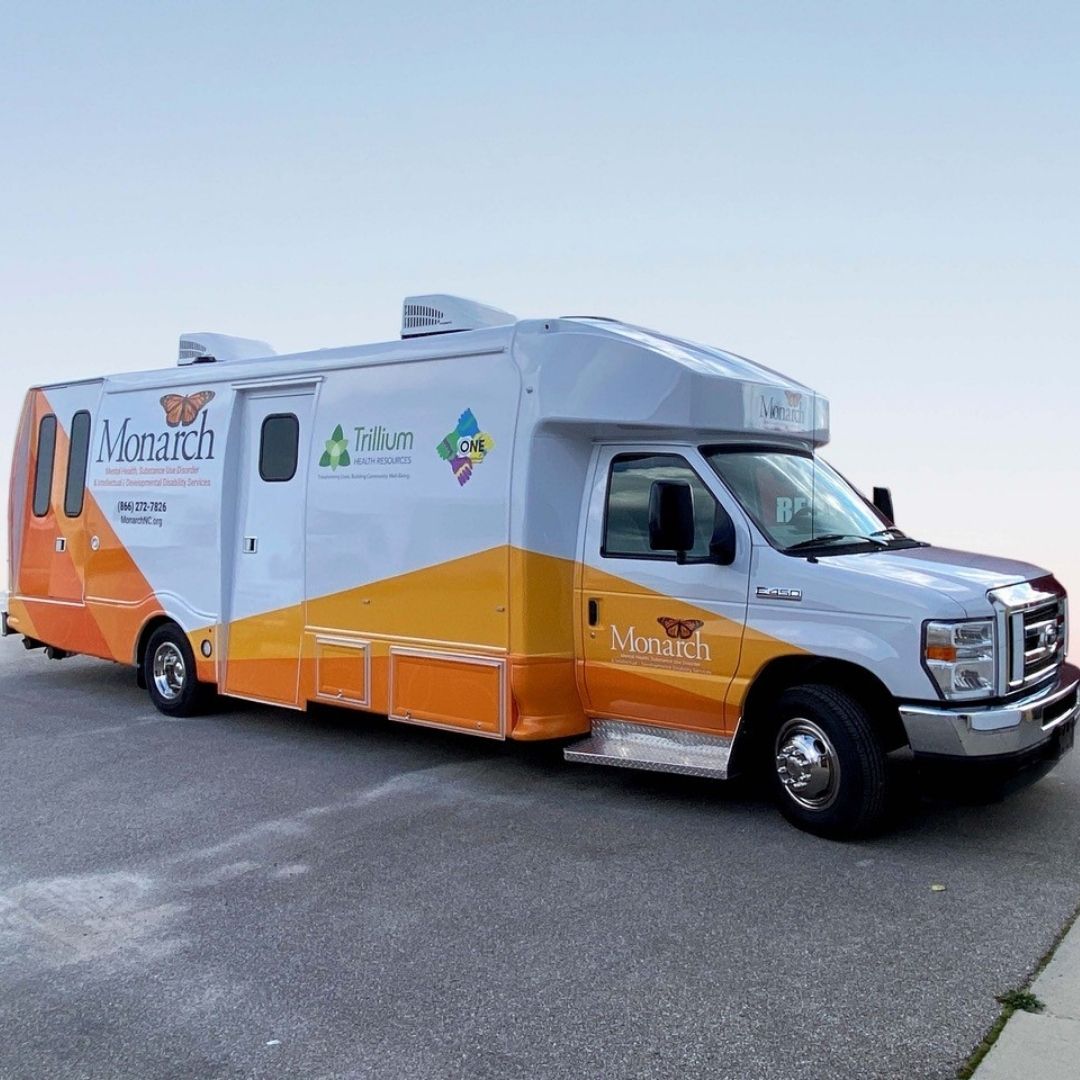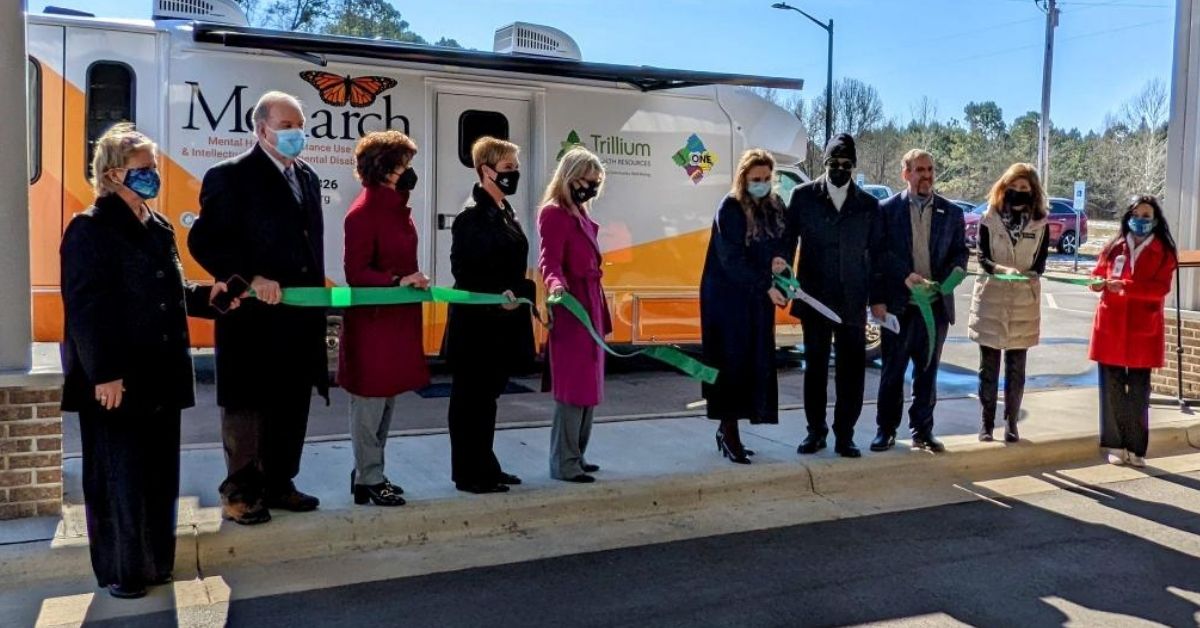Mobile Integrated Care Clinic Rolls into Northeast North Carolina Counties

Monarch’s new Mobile Integrated Care Clinic offers people in need mental health and substance use disorder services.
What is orange and white, measures 29 feet on wheels and offers confidential mental health and substance use disorder (SUD) services? A Monarch Mobile Integrated Care Clinic!
Earlier this year, Monarch launched a Mobile Integrated Care Clinic in partnership with Trillium Health Resources, to better reach people with mental health and SUD needs in Gates, Halifax, Nash and Northampton counties, east of the Raleigh area. Additionally, a second Mobile Integrated Care Clinic will launch late in summer 2022 providing services to Bertie and Hertford counties.
The Mobile Integrated Care Clinic offers services to include screenings, SUD treatment, therapy, the combined use of medications with counseling and behavioral therapies for opioid use disorders called Medication-Assisted Treatment (MAT), Care Management (an integrated, team approach) and peer support. The Mobile Integrated Care Clinic services follows a rotating a schedule by county visiting key community locations.
Executive Vice President, Chief Operating Officer, Outpatient Behavioral Health, Lyndril Leonard, MA, LCMHC, believes that the mobile clinics will offer impactful, accessible mental health services for individuals in need. “Our mobile clinics will help reduce health care barriers that are often experienced in these communities by providing high quality services in convenient locations, bringing services into areas where none existed before and connecting patients to qualified care providers,” she explains.
Trillium Health Resources received a federal Substance Abuse Treatment Block Grant in 2021 through the North Carolina Department of Health and Human Services to address needs in the six counties. In 2022, Trillium is launching nine mobile care units in various counties in Eastern North Carolina which include Monarch’s Mobile Integrated Care Clinics.
Findings from a North Carolina study released by Governor Roy Cooper show that in Bertie, Gates, Halifax, Hertford, Nash and Northampton counties, 360 percent more opioid-related deaths resulted in 2015 when compared to 2005. The population that Monarch serves often experiences a variety of traumas and turn to substances to deal with emotional pain, Lyndril points out.
Another obstacle in the rural North Carolina region is the staggering low ratio of mental health care providers to people in need.

Melissa Hall, MBA, BS, Chief Operations Officer and Executive Vice President, Behavioral Health, (shown with scissors) helps cut the ribbon to launch Monarch’s Mobile Integrated Care Clinic along with community and state representatives in Nash County. Similar open houses showcased the Mobile Clinic in Gates, Northampton and Halifax counties earlier this year.
“Monarch’s Mobile Integrated Care Clinics will increase access to care by expanding and enhancing SUD availability in these four counties, where providers are sparse,” Lyndril notes. “Statistics show that the most vulnerable residents have not been receiving appropriate treatment and our plan is for the mobile clinics to offer professional, convenient and accessible care that will improve lives.”
Professionals within the mental health field saw an increased need for mental health and SUD services prior to the pandemic. The aftermath of the worldwide health event has demanded access and availability of all types of health programs. “We know that SUD, opioid addiction and overdose continue to take their toll. The pandemic has continued to create challenges and we now have a way to address some of those issues, on the ground and in the communities,” Lyndril says.
For schedule, details about services and hiring needs for Monarch’s Mobile Integrated Care Clinics, visit the website page.
Watch these videos for a peek at Monarch’s Mobile Integrated Care Clinic:
Posted on: Tuesday May 17, 2022
